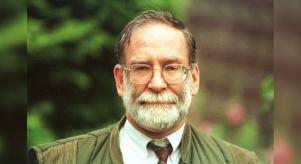
Interview with Colin Sutton: 'The real manhunter'
Ex-Senior Investigating Officer for the Met Police Murder Squad who led the investigations to convict Levi Bellfield and Delroy Grant.
Colin Sutton spent the last nine years of his police career as Senior Investigating Officer for the Met Police’s Murder Squad. Among the dozens of investigations he led, the most notable was perhaps the operation which convicted the serial killer Levi Bellfield. He then took over and reinvigorated the ‘Night Stalker’ investigation in 2009, which quickly led to the arrest and conviction of Delroy Grant for a long series of rapes on the elderly. He was also responsible for the re-investigation of the Deepcut Barracks deaths.
Colin retired with 30 years service in the police and he now advises and provides commentary and insight around crime and criminal justice issues for both the written and broadcast media. In addition to his investigative work Colin has significant experience of managing volume crime, covert law enforcement techniques, informant handling and technical surveillance. Colin has a degree in law and studied Criminal Justice post-graduation. He maintains a great interest in, and has forthright opinions on the criminal justice system and policing, from the commission of offences right through to the sentencing of offenders and the prison system.
Levi Bellfield remains one of the UK’s most infamous serial killers – what clues ultimately led to his conviction?
Ultimately it was thorough and painstaking analysis of CCTV images and then mobile phone records. But even though that was what made us suspect Bellfield, the complete lack of scientific evidence meant that there followed more than 3 years of patient case-building, old-fashioned detective work unearthing small pieces of circumstantial evidence which, when added together, formed the compelling case which convicted him.
The focus was switched from trying to identify the offender by DNA – mass-swabbing of a huge number of potential suspects – to a proactive operation, using 75 officers and technical surveillance in an area identified by analysis of his ‘favourite’ target area. He then, after 17 days, committed a burglary in the area, was observed and arrested. When you approach a case like Bellfield or Grant as an Investigating Officer what do you look for first?
Most cases of murder and serious crime are spontaneous, so that a quick and large-scale response will often bring quick results. But men like Bellfield and Grant are more cunning, they plan their crimes and try their best to avoid leaving forensic evidence. These are the hardest cases to solve. Ultimately both were caught because they continued to offend and gave me renewed opportunities to identify them. In such cases the SIO has to be patient, not to jump to conclusions or swift action but to consider all the possibilities. The more planning the criminal employs the more we must use against them.
How have advancements in forensics and psychology changed police investigations?
There is no doubt that DNA, and the ever-increasing sensitivity of tests for it, have made most serious crimes easier to solve. In many cases it will give irrefutable proof of presence, and therefore of guilt. But it has made some detectives over-reliant upon it, and this was very evident in Delroy Grant’s case. Psychology has helped interviewing officers, and an understanding of the criminal to a degree. However offender profiling is very rarely as successful or impactful in reality as it is portrayed in fiction.
Why do you think it is important for the public to understand what happens in these horrific crimes?
First it is necessary to enlist the public as our eyes and ears. The worse the crime the more likely the public are to come forward with information.
Secondly it is necessary to reinforce the message for the public to take care, to try to minimise the risk to them of becoming victims.
Thirdly, it is part of the entire criminal justice process – the public must know why society is incarcerating these criminals for so long, and also be reassured that the police and the system actually does work for them in making the community safer.
What makes killers like Grant and Bellfield get so much press attention compared to others?
Thankfully, it is because they are so rare, and therefore unusual. Their crimes are just so far beyond the comprehension of normal people that they are truly shocking, and as such there will always be a demand for their stories to be told. It is, I suppose, the same reason that they are given so much police attention too.
Are there any unsolved cases across the world that you would be interested in tackling?
Not now, I am too happy being retired! But had the Madeleine McCann review come my way before retirement I would have stayed to complete that; it is the greatest mystery of our generation, and despite its obvious difficulty I would have been unable to resist the opportunity to try to help solve it.





